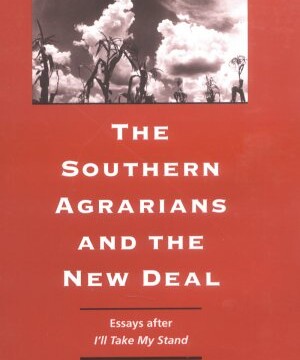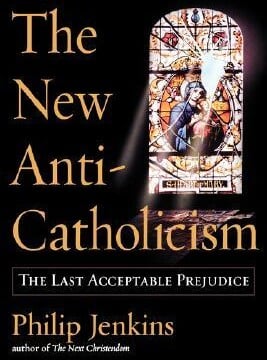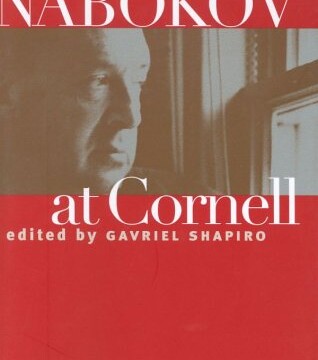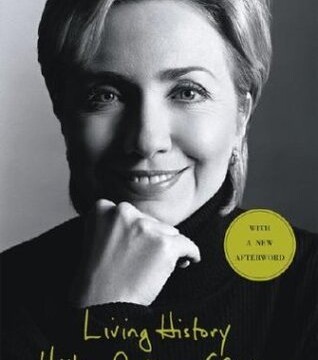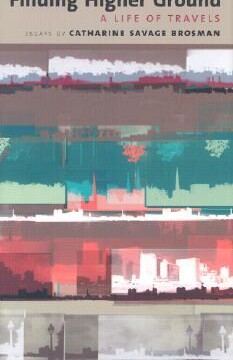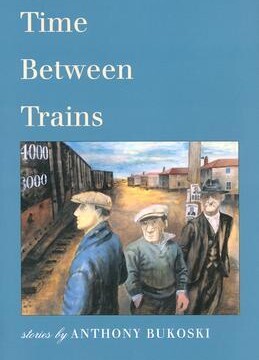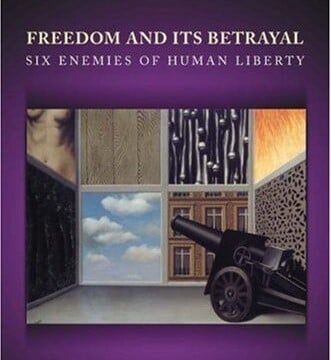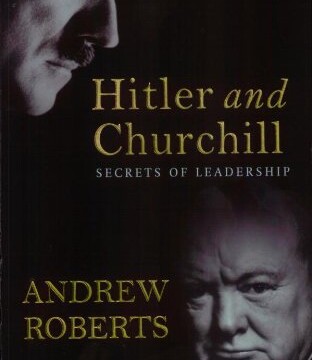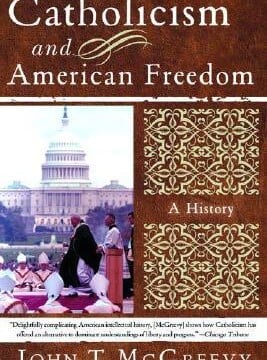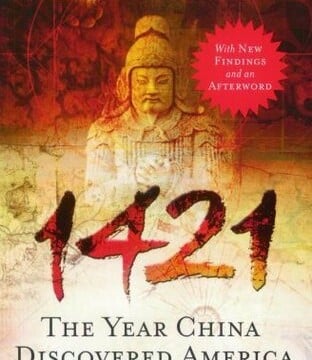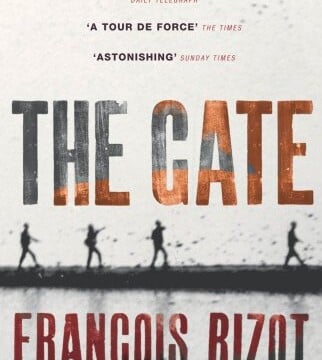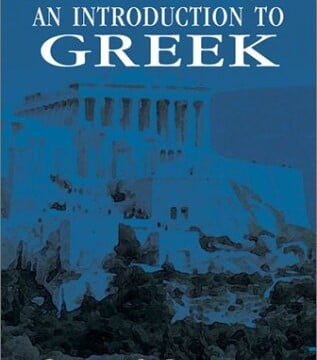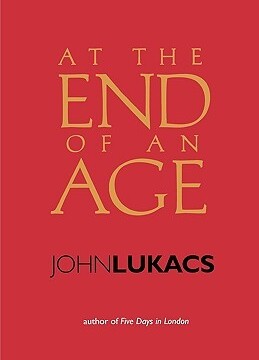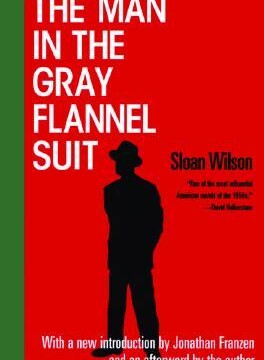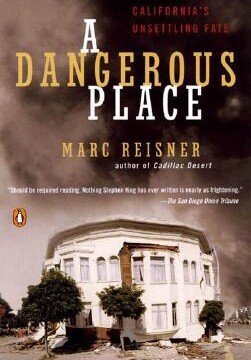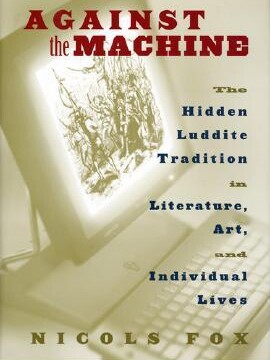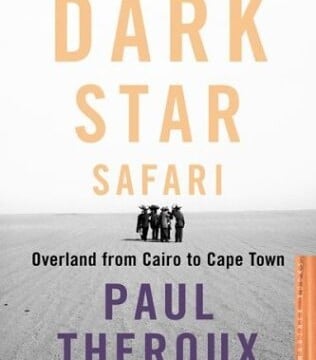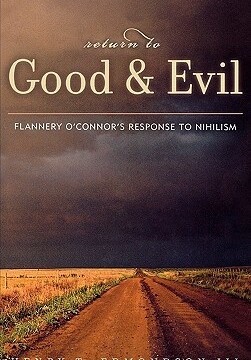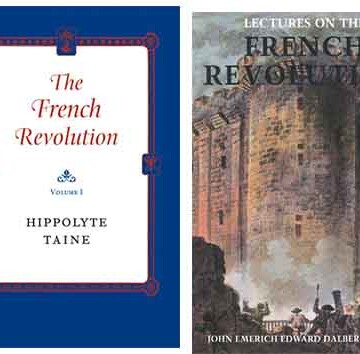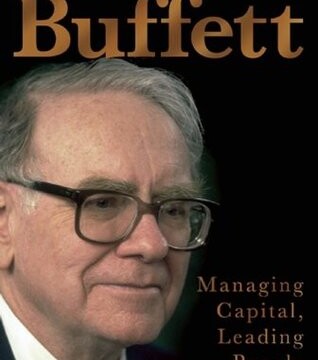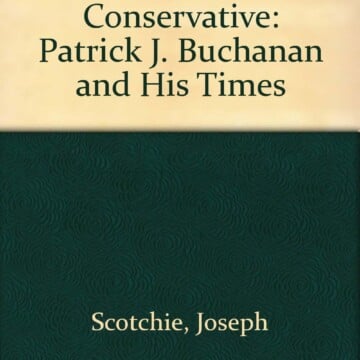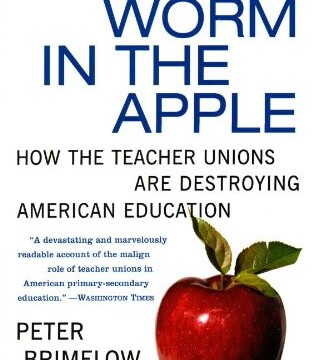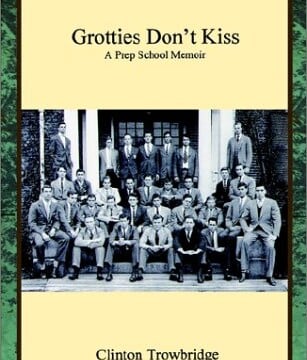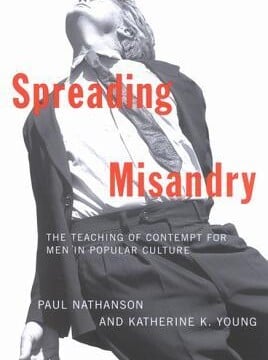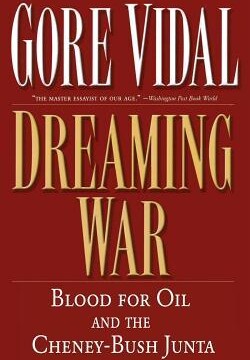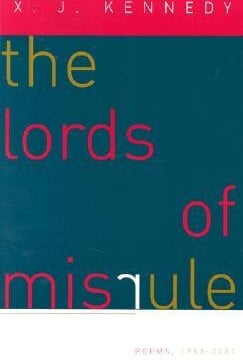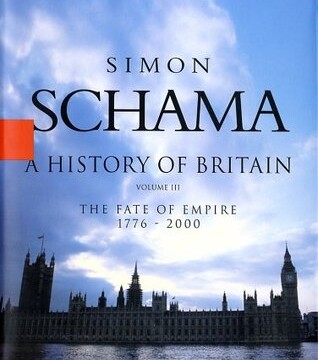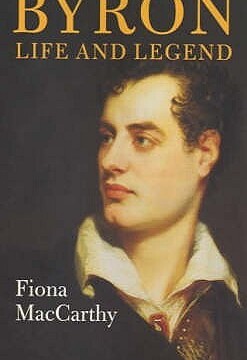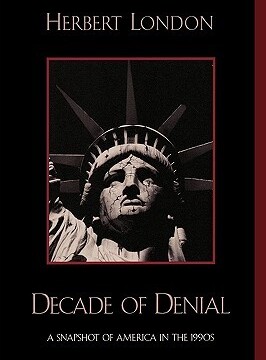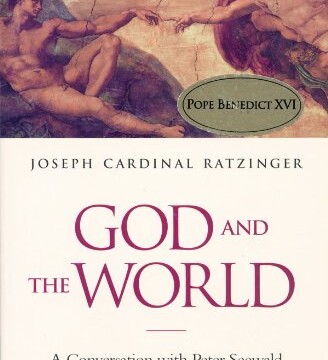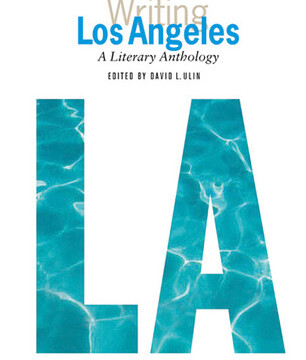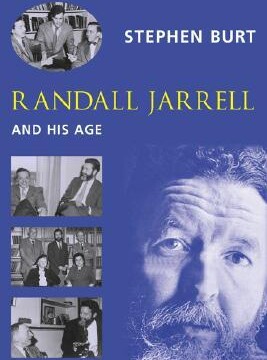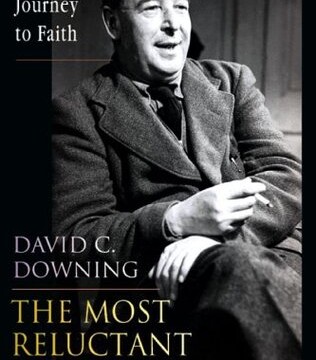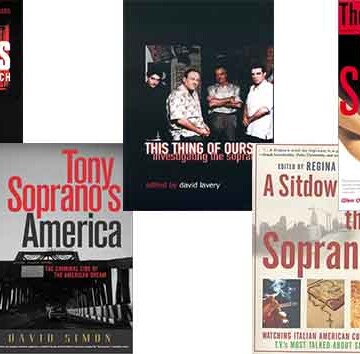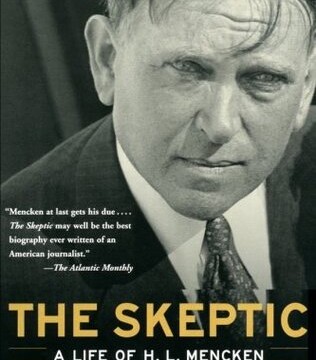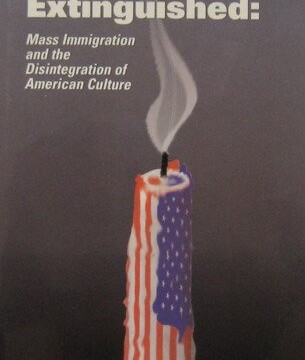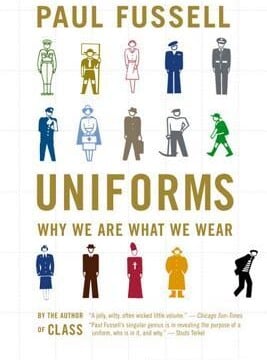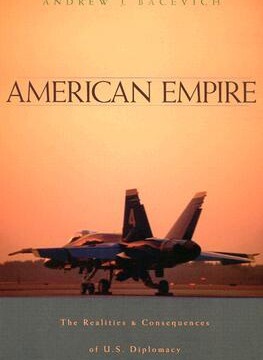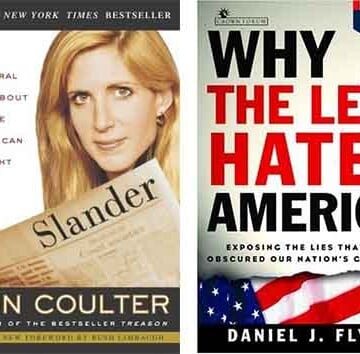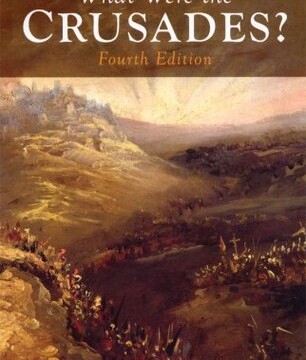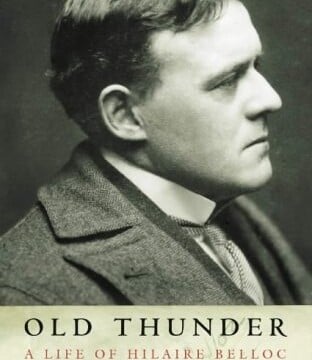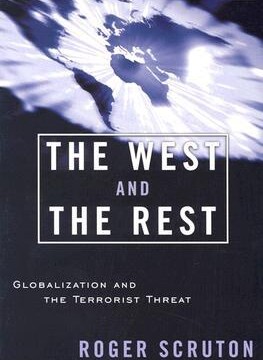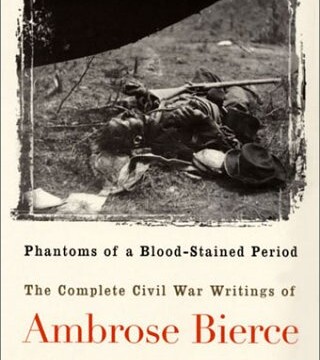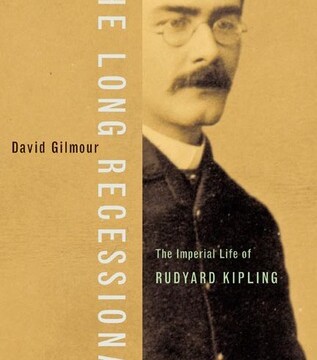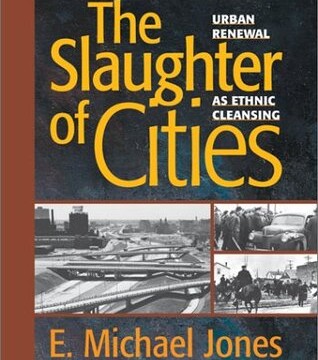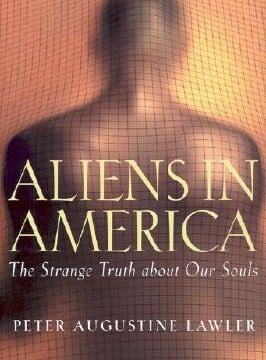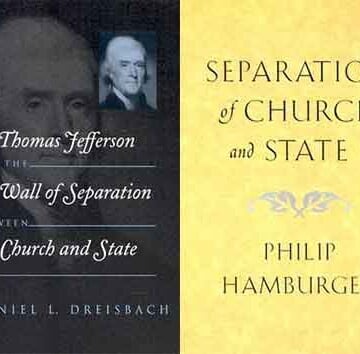The 1930’s were marked by intellectual trauma as well as by economic hardship. What had caused the apparent catastrophic crash of “capitalism”—collapse of equity, vanishing demand, and vast unemployment? The desire to diagnose the cause and prescribe a remedy created many ideas and movements. Some achieved success of a sort, and others went unheeded. The...
Category: Reviews
An Interlocking Directorate
Anti-Catholicism is far from new to America, but there certainly is a new anti-Catholicism in America. In the mid-19th century, anti-Catholic abolitionists, Know-Nothings, evangelicals, and Republicans railed against what the 1856 GOP platform derisively called the “twin relics of barbarism, slavery and polygamy.” Today, anti-Catholic feminists, homosexuals, liberal Protestants, and Democrats hold fast to the...
Flawed Genius
Vladimir Nabokov—like Hemingway, Lorca, and Borges—was born in 1899, began life in the stable Victorian era, lived through the horrors of the Great War, and came to artistic maturity in the 1920’s. Driven out of Russia by the revolution of 1917, exiled in Berlin and Paris for the next two decades, Nabokov reached New York...
Some Things You Have to Face Alone
“Always do what you are afraid to do.” —Anonymous Fall 2000 already seems like a long time ago, and it actually is. Perhaps I remember in a haze of nostalgia for that period, a brief entertainment of hope for the American polity, one which was soon snuffed in a blizzard of dimpled chads and a...
My Ground, Myself
To a woman who has spent several decades of her life in New Orleans, a city that lies mostly below sea level, any trip out is a journey to higher ground. And so Catharine Savage Brosman’s title works for a book of essays mostly about journeys away (though she includes a nice piece on New...
Superior Fiction
One of the pleasures of fiction is the opportunity that novels, short stories, and epic poems give us to escape from our own everyday world into an alien world of gods and heroes (as in the Iliad) or knights and wizards (Tennyson’s Idylls), English villagers (in Hardy’s Wessex), or Mississippi rednecks and redskins (of Faulkner’s...
That Old Fox
Give Isaiah Berlin this much: He had the good sense to choose Henry Hardy as an editor and literary trustee. Since Berlin’s death in 1997, Hardy has moved at a reasonable pace in releasing Berlin’s unpublished papers, but he has taken great care to do it right. A case in point is last year’s Freedom...
Style in History
“An institution is the lengthened shadow of one man.” —Ralph Waldo Emerson Hitler & Churchill—Secrets of Leadership is made from Andrew Roberts’ recent BBC television series, Secrets of Leadership, in which he sought to tease out the management secrets of four famous charismatic leaders—Hitler, Churchill, Martin Luther King, Jr., and John F. Ken-nedy. With this...
In a Strange Land
There will always be tension between America’s experiment with democracy and hierarchically structured Roman Catholicism, because the two proclaim different concepts of freedom. While the former is grounded in the individualism of Protestantism and, more recently, of secularism, the latter regards true freedom as being circumscribed by claims imposed by considerations of the common good...
. . . plus c’est la même chose
Gavin Menzies, a retired British naval officer and submarine commander, has advanced a startling thesis. He believes that, in 1421-23, a large Chinese fleet circumnavigated the world and skirted the continents of Africa, South America, Antarctica, and North America. Before you dismiss his contention as the latest multicultural myth, like claiming black Africa as the...
The Authority of Pain
In April 1970—between the fall of Prince Sihanouk’s government and the American and South Vietnamese invasion of Cambodia—the young Sean Flynn, war photographer and son of Errol Flynn, deliberately drove into a Vietcong roadblock in Cambodia. He wanted to report the war from the communist side but was captured and accused of spying for the...
If It Ain’t Broke . . .
Greek teachers are frequently asked which text they recommend for introductory Greek. Although many new textbooks have come along since 1928, when An Introduction to Greek by Henry Crosby and John Schaeffer was first published, none has rivaled, much less surpassed, this old warhorse. It is not that the rivals are without merit. James Allen’s...
Christ and History
In theory, it seems like a good idea. The corpus of historian John Lukacs’s work is so rich and has grown so large that those who have just discovered it may be uncertain where to start. His magnum opus, Historical Consciousness, alone has gone through three editions, all of which are worth reading as separate...
A Classic Reconsidered
Do not look for last year’s best novel piled high in a fancy stack at the Books-A-Million or B. Dalton, with the belles lettres of Tom Clancy or John Grisham, because the best novel of 2002 was written 48 years ago. The Man in the Gray Flannel Suit, by Sloan Wilson (recently deceased), hit the...
What the Thunder Said
“The earth opened her mouth, and swallowed them up, and their houses, and all the men that appertained unto Korah, and all their goods.” —Numbers 16:32 The Lisbon Earthquake of 1755 convinced Voltaire (who didn’t need convincing to begin with) of the nonexistence of God. The Great California Earthquake, when it comes (as it must),...
The Imitation of Christ
Faith in technology is one of the central tenets of the modern age. Becausetechnological development is equated with progress, the technological world-view has been adopted by virtually every ideology and political regime the world over. All technology is good; more is better. Those who criticize this orthodoxy are seen as delusional or, worse, as dangerous. ...
Bad News From Africa
In previous books, now classics of travel writing, Paul Theroux described his long train journeys through India and Russia, South America, and China; his ramblings around England and the Mediterranean; his paddling through Oceania. More interested in people and landscape than in history and art, Theroux combines description and interpretation with social criticism and political...
Nothing Is Dead
Since she died in 1964 at the age of 39, Flannery O’Connor has not receded from literary awareness nor from a larger consciousness we might call philosophical or spiritual or religious. Her place in the literary canon is secure in part because her reputation rests on more than the mere acknowledgment of authorities, many of...
Le dernier rire
I am frequently asked to recommend the best book on ancient history or moral philosophy or the French Revolution, and, since I do not believe there is one best book on anything, I usually content myself with saying what not to read: Do not read Donald Kagan or Paul Rahe on the ancients; and do not...
Return of Capital
One of the great ironies of the late-1990’s stock-market bubble is that more Americans followed the advice of Wall Street scam artists than that of Omaha billionaire Warren E. Buffett, the best money manager in the second half of the 20th century. The “New Paradigm” fooled much of America; Buffett and his partner, Charlie...
The Now and Future Pat Buchanan
Did Pat Buchanan’s politics fail? That is not a question Joseph Scotchie’s biography explicitly seeks to answer, but it is one that a reader of the book cannot help asking. As the Reform Party’s candidate, in his third and last presidential bid, Buchanan earned less than one percent of the vote. In his exposition of...
Pax Americana
“America is not to be Rome or Britain. It is to be America.” —Charles Beard William Kristol boasts that September 11 proves the neocons to have been prophets because, after the Cold War, they alone warned that the world had become a more dangerous place, not a safer one. He and his crowd cite three...
Long Day’s Journey Into Ignorance
“There is no use in excellent laws, even ones approved by all active citizens, if the citizens have not been habituated to and educated in the city’s way of life.” —Aristotle, Politics 5.9 In Céline’s nightmarish masterpiece, Journey to the End of the Night, the hero reaches America in a slave ship. He escapes, but...
Hello, Mr. Clint
As I grow older, I think less and less about trying my hand at fiction. For an old man who has kept his eyes open and made a few mental notes of what he has seen, the great temptation is to write a memoir. Even a good novel may never find a publisher, while even...
The Fronts
We hear much about misogyny (woman-hating) these days but far less about misandry (man-hating). Spreading Misandry, coauthored by a woman who has written extensively on women’s issues, identifies negative stereotypes and double standards that harm not only men but society as a whole. Paul Nathanson and Katherine K. Young document the hostility toward, and contempt...
The Patriot
Edward Abbey used to say that he took great pride in getting more radical as he got older—no easy task for the anarchist son of a communist father, but an impeccably American maturation just the same. As the American Empire staggers into senseless senescence, what patriot, whether populist, reactionary, or just cantankerously American, isn’t being...
Sublime Misrule
X.J. Kennedy can be said almost to be a popular literary figure. (A New Jersey native, Joseph Charles Ken-nedy, born in 1929, adopted his pen name upon settling in Massachusetts.) This is not at all to say that he belongs to popular, or mass, culture. But his accomplishments in verse have been widely recognized, and deservedly...
The Fate of Britain
“The day of small nations has passed away; the day of empires has come.” —Joseph Chamberlain Simon Schama is university professor of art history and history at Columbia University and the author of histories and art histories, such as his 1995 Landscape and Memory and his two works on Dutch art and culture, An Embarrassment...
Agonies of Intrigue
Lord Byron was the most fascinating literary figure of the 19th century. Fiona MacCarthy’s solid and competent biography covers the ground in great detail (the deformed foot, the scandalous exile, the endless wandering, the early death in Greece) but fails to engage our interest or do justice to its subject. Desperately straining to say something...
It’s the Stupids, Stupid!
Herb London’s newest book, a relentlessly critical view of American morals and culture in the 1990’s, makes two pivotal observations. First, the moral deterioration that journalists associate with the Republican “decade of greed” (the 80’s) actually took place, partly thanks to the media, in the 90’s. Second, the major impact of the Clinton presidency was...
The Path of Less Resistance
Joseph Cardinal Ratzinger, prefect of the Congregation for the Doctrine of the Faith (formerly the Holy Office) since 1983, has exercised enormous influence within the Catholic Church. In late 2002, he was elected dean of the College of Cardinals, a largely ceremonial and honorary position to be sure, but one that reflects his continuing influence...
MacArthur Park Is Melting in the Dark
Now, before I have my say about David L. Ulin’s new compendium of writing on Los Angeles, there are just a few things that need to be said about my own “Hollywood years,” because I get tired of being asked about that episode by nosy people who are just plain confused about the facts. So...
The Consent of the Governed Revisited
Americans have lost the habit of constitutional government. Judges hand down commands derived from their own personal revelation, in the teeth of law and majority rule, and are tamely obeyed by millions. A President, recently sworn to uphold the Constitution of the United States, announces his intention to commit the blood and treasure of the...
Tame Monster
Randall Jarrell was born in Nashville in 1914 and grew up in Tennessee and Southern California. He studied under poet and critic John Crowe Ransom at Vanderbilt University and followed him to Kenyon College, where he lived in Ransom’s attic with the young Robert Lowell and wrote his thesis on A.E. Housman. Encouraged by Allen...
Myth of Ages
David C. Downing’s study of C.S. Lewis and his conversion to Christianity in his early 30’s offers more than the title might suggest. What we are given is not a repetition of the well-known narrative from Surprised by Joy, in which Lewis recounts his journey from youthful atheism to Christian belief 15 years later. Nor...
Bada Bing, Bada Bang, Bada Boom
“It was wonderful to find America, but it would have been more wonderful to miss it.” —S.L. Clemens In California, two brothers ages 20 and 15, murdered their mother and then cut off her head and hands, after which they were seen trying to unload a package with a foot sticking out of it into...
The Virtues of Dorothy Parker
Literary biography is often an opaque filter for the work of modern writers. The interference comes not so much from the cockeyed analysis we may encounter of an artist’s life but from the mass of irrelevant detail. We read the novels and short stories of Ernest Hemingway and J.D. Salinger but also know the events...
Two Skeptics
H.L. Mencken has been given a fairly free ride by his various biographers. That ride is now officially over. It might have ended even sooner, had Terry Teachout been able to make up his mind about his subject. For years, Teachout has advertised himself as being “at work” on a biography of Mencken. Now, the...
While America Sleeps
Ten years ago, it appeared that immigration restrictionists were poised to win some real political victories. In 1992, Pat Buchanan had raised the previously untouchable issue in his presidential primary challenge to George H.W. Bush. That same year, National Review, under the editorship of John O’Sullivan, joined Chronicles in calling for deep cuts in legal...
Making the Man
“There is something about a man in uniform,” the old adage goes. Few have been as affected by their time in uniform as Paul Fussell, who served in the U.S. Army from 1943 to 1947, during which period (he tells us in his memoir) he was “ill-treated by members of the German Wehrmacht.” The titles...
Who’s the Ugliest of Them All?
“Empires are not built in fits of absent-mindedness.” —Charles A. Beard Described by the author as a “venture in contemporary history,” American Empire is also an in-depth study of the post-Cold War foreign policies of the last three presidential administrations, all of which Andrew Bacevich believes sought to preserve and extend an American empire. Bacevich,...
Light Slander, Heavy Artillery
Both of these books are written by young, self-styled conservatives; both demonstrate indisputably the unfounded charges made against the “right” by the media and academics; both easily devastate the biased and factually inaccurate statements about Republicans, conservatives, and the American past and present that emanate from the cultural left. The TV personalities Ann Coulter goes...
Taking Up the Cross
The Crusades are an increasingly controversial topic of historical debate. As much as slavery, the Civil War, and the conquistadores, Western Europe’s attempt to recover the Holy Land has been denounced by the anti-Christian left as a quintessential expression of Western man’s vileness. There are many good narrative accounts of the Crusades and many mono-graphs...
Making Energy
The lives of great men are largely unconstrained, which may explain why there are so few great men today. All men are, of course, constrained by their personal limitations as well as by the limitations their age imposes on them, but it is in the nature of greatness to overcome such limitations to the extent...
Politics and Power
“A bastard kind of Christianity, but a living kind; with a heart-life in it; not dead, chopping barren logic merely.” —Thomas Carlyle Since September 11, 2001, there have been many articles and several books purporting to explain what led up to the attacks on the World Trade Center and the Pentagon. Intelligence and military analyses,...
The Point of War
The U.S. government continues its slow but relentless buildup of military forces in the Middle East, preparing to unleash “Fourth-Generation” warfare against the eighth reincarnation of Adolf Hitler. Historians and pseudo-historians extol the liberating glories of past redemptive wars waged by God’s instrument on earth. The Bush administration, neocons, and theocons (and other cons in...
Palm and Pine
David Gilmour’s witty and elegant, original and useful book chronicles “Kipling’s political life, his early role as apostle of the Empire, the embodiment of imperial aspiration, and his later one as the prophet of national decline.” Sympathetic yet aware of Kipling’s faults, Gilmour shows that his ideas were more subtle than those of a crude...
The Rest of the Story
In this densely composed study, E. Michael Jones, editor of Culture Wars and outspoken Catholic traditionalist, tries to explain why American inner cities have been physically and socially devastated. Investigating four metropolitan areas that he knows well—Philadelphia, Chicago, Detroit, and Boston—Jones argues that established urban neighborhoods did not deteriorate simply because of economic crises or...
A Pacified Globe
If Ted Williams bats third in the Red Sox lineup on opening day at Boston’s Fenway Park in A.D. 2115, then Peter Augustine Lawler’s worst nightmare will have been realized. Lawler, a professor of government at Berry College in Georgia, has written Aliens in America as a jeremiad against the brave new biotech revolution that...
Metaphors Have Consequences
“The adulterous connection of church and state.” —Thomas Paine Is “separation of Church and State” a bedrock principle of the U.S. Constitution? Should it be? The answers of constitutional historians Daniel L. Dreisbach and Philip Hamburger fly in the face of conventional wisdom, embodied in such cases as Santa Fe Independent School District v. Doe...
